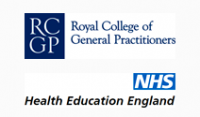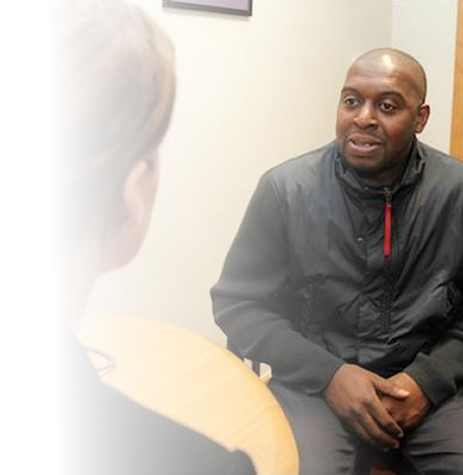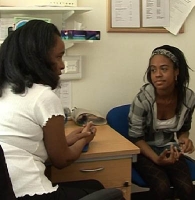HIV and Why Early Diagnosis Matters course for GPs



This session will give an update on HIV in the UK. It will explain the clinical significance of late diagnosis - and discuss strategies to increase early diagnosis. This session was last reviewed by A Bhuiya and updated on 18/06/2013.
Learning Objectives
By the end of this session you will be able to:
- Outline key facts about HIV including routes of transmission and strategies for prevention
- Recognise the benefits of reducing undiagnosed HIV infection and describe the risks to health of late diagnosis
- Outline strategies for improving the diagnosis of people with asymptomatic HIV infection in the general practice context
- Describe strategies to establish, promote and increase HIV testing by the practice team
- Recognise possible primary HIV infection and be aware of how to confirm the diagnosis
By the end of 2011, an estimated 96,000 people were living with HIV in the UK; approximately one quarter - 22,600, 24% - of whom were undiagnosed and unaware of their infection. This is an increase from the 91,500 people estimated to have been living with HIV by the end of 2010.
Before commencing this session you should:
- Complete the preceding introductory sessions in the Sexual Health and Contraception module
- Be working or training in the general practice context
Dr Philippa Matthews (MBBS, FRCGP) is currently Primary Care Development Lead at the Africa Centre in KwaZulu Natal, South Africa, working with a population with the highest prevalence of HIV in the world. Prior to this she was a GP in Kings Cross, London, and Sexual Health Clinical Lead for Islington.
She has developed and delivered sexual health training and written extensively about sexual health services in primary care, most recently authoring MEDFASH’s new HIV Testing in Practice (HIV TIPs) webtool to support GPs and practice nurses to increase HIV testing in this area.


Judith is project manager of the Sexual Health in Practice (SHIP) scheme in Birmingham and associate lecturer at Warwick Medical School, undertaking module leadership on the Post Graduate Award - Delivery of Sexual Health Care.
For many years Judith practiced as a nurse and health visitor in a variety of settings – hospitals, schools and primary care. After graduating from Birmingham University in 1988 and completing a masters degree in health promotion and education in 1994, Judith developed extensive experience in education, as an FE college lecturer and Open University Tutor. For the last 17 years she has worked as a health promotion specialist delivering and managing a wide range of diverse sexual health promotion initiatives, involving Theatre in Health Education (THE), peer education and NHS workforce development, across the Birmingham area.
Ruth is Chief Executive of the Medical Foundation for AIDS & Sexual Health (MedFASH). She is also a member of both the Independent Advisory Group on Sexual Health and HIV, and the UK Chief Medical Officers’ Expert Advisory Group on AIDS.
Ruth started her career in a reproductive health charity, gaining experience of direct service provision. She then worked at the Health Education Authority, moving up over time to become Manager of its Sexual Health and HIV Programme which provided national public education campaigns, information and support for local health promotion, public health research and policy development. In the last ten years, under her leadership, MedFASH has managed a series of major national projects including a review of the National Strategy for Sexual Health and HIV (2008), the development of Standards for the management of sexually transmitted infections (2010) and the production of educational materials on HIV testing. She was on the writing group for the UK guidelines for HIV testing 2008 and is a long-term member of the RCGP Sex, Drugs and HIV Group.

- Epilepsy in People with Learning Disabilities cour...
- Posted By eIntegrity Healthcare e-Learning
- Posted Date: 2024-11-01
- Location:Online
- This session describes how to provide a high standard of care to patients with learning disabilities...
- Screening Programmes Part 2: Antenatal and Newborn...
- Posted By eIntegrity Healthcare e-Learning
- Posted Date: 2024-11-01
- Location:Online
- This session describes and discusses the NHS Fetal Anomaly Screening Programme, the NHS Newborn and ...
- Screening Programmes Part 1: Pregnancy and Newborn...
- Posted By eIntegrity Healthcare e-Learning
- Posted Date: 2024-11-01
- Location:Online
- This session will describe and discuss the following three NHS antenatal and newborn screening progr...
- Ensuring Quality: Role of the UK NSC, Policy Devel...
- Posted By eIntegrity Healthcare e-Learning
- Posted Date: 2024-11-01
- Location:Online
- This sessions offers you an understanding of how screening programmes are chosen and how their quali...
- Overview and Principles of Screening course for Ge...
- Posted By eIntegrity Healthcare e-Learning
- Posted Date: 2024-11-01
- Location:Online
- This session provides an overview of the principles and practice of screening, clarifying relevant t...






